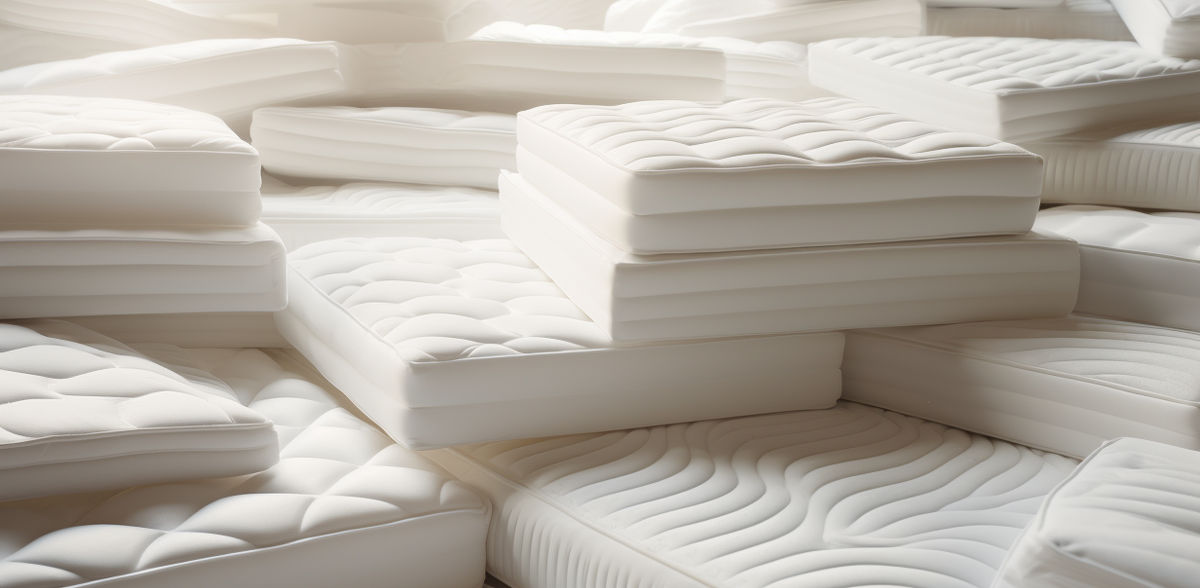Evonik cooperates with REMONDIS on sustainable polyurethane recycling
The cooperation will support Evonik as it develops its chemical recycling process to the next level
Advertisement
Evonik is one step closer to its goal of closing the material cycle in the polyurethane industry: The company has joined forces with the REMONDIS Group, one of the world's leading recycling companies to secure the supply of end-of-life mattress foams. The cooperation will support Evonik as it develops its chemical recycling process to the next level. Evonik’s innovative Hydrolysis process makes it possible to recover the main components of polyurethane foam and reuse them as high-quality building blocks in the production of new mattresses. This process is currently being tested in a pilot plant in Hanau, and in a next step, the recycling process will be tested in a larger demonstration plant.
According to estimations, more than 250 kilotons of PU foam from old mattresses are incinerated or landfilled in Europe every year. Evonik and REMONDIS want to help reduce this with the goal of ensuring fewer fossil raw materials are used in the PU value chain by returning valuable materials to the raw material cycle. "Circularity in the field of flexible polyurethane foams is very important both for the environment, and for the future viability of our business. It gives us the opportunity to act in the interests of the environment, the industry, and consumers," said Thomas Wessel, the member of Evonik's Executive Board responsible for sustainability.
The REMONDIS Group contributes its expertise in sorting PU flexible foams from waste and feeding them into the cycle in constant quality so that they can be converted into chemical recyclates using Evonik's hydrolysis process. "By working together with REMONDIS, we can evolve from the current linear value chains to functioning circular loops. True circularity only works in networks, that’s why we are actively expanding our collaborations," said Dr. Patrick Glöckner, Head of Evonik's Global Circular Economy Program.
The cooperation with the flexible foam producer The Vita Group, started in 2021, has already successfully demonstrated that Evonik's hydrolysis process recovers raw materials of significantly higher quality, and thus improved usability compared with previous recycling technologies. Increased use of recycled materials lowers the dependence on fossil raw materials and reduces the ecological footprint of the PU industry. According to findings so far, Evonik's process significantly reduces the CO2 footprint compared with mattress production using fossil raw materials. The demonstration plant intends to prove that this also applies on a larger scale.
"For us, closing material life cycles is not only a business objective but also an expression of our responsibility towards society as a whole. Conserving raw materials around the world and processing them again and again is a fundamental prerequisite for sustainable environmental and climate protection," said Jürgen Ephan, Managing Director of REMONDIS Recycling GmbH & Co. KG. "REMONDIS reintegrates enormous quantities of materials back into the production cycle. Every year, we collect more than 30 million tons of recyclable materials, process them and make them available to the industry as raw materials, with the numbers continuing to increase. What drives us is the constant development of new processes to close or optimize material cycles. Therefore, we are very pleased to be working with Evonik to tackle the challenge of finding an efficient solution for the raw material recovery of foam mattresses."
The initial focus of the project is on the region of North Rhine-Westphalia, Germany. However, the goal is to develop a scalable technology and a business model that can be expanded internationally.

































































